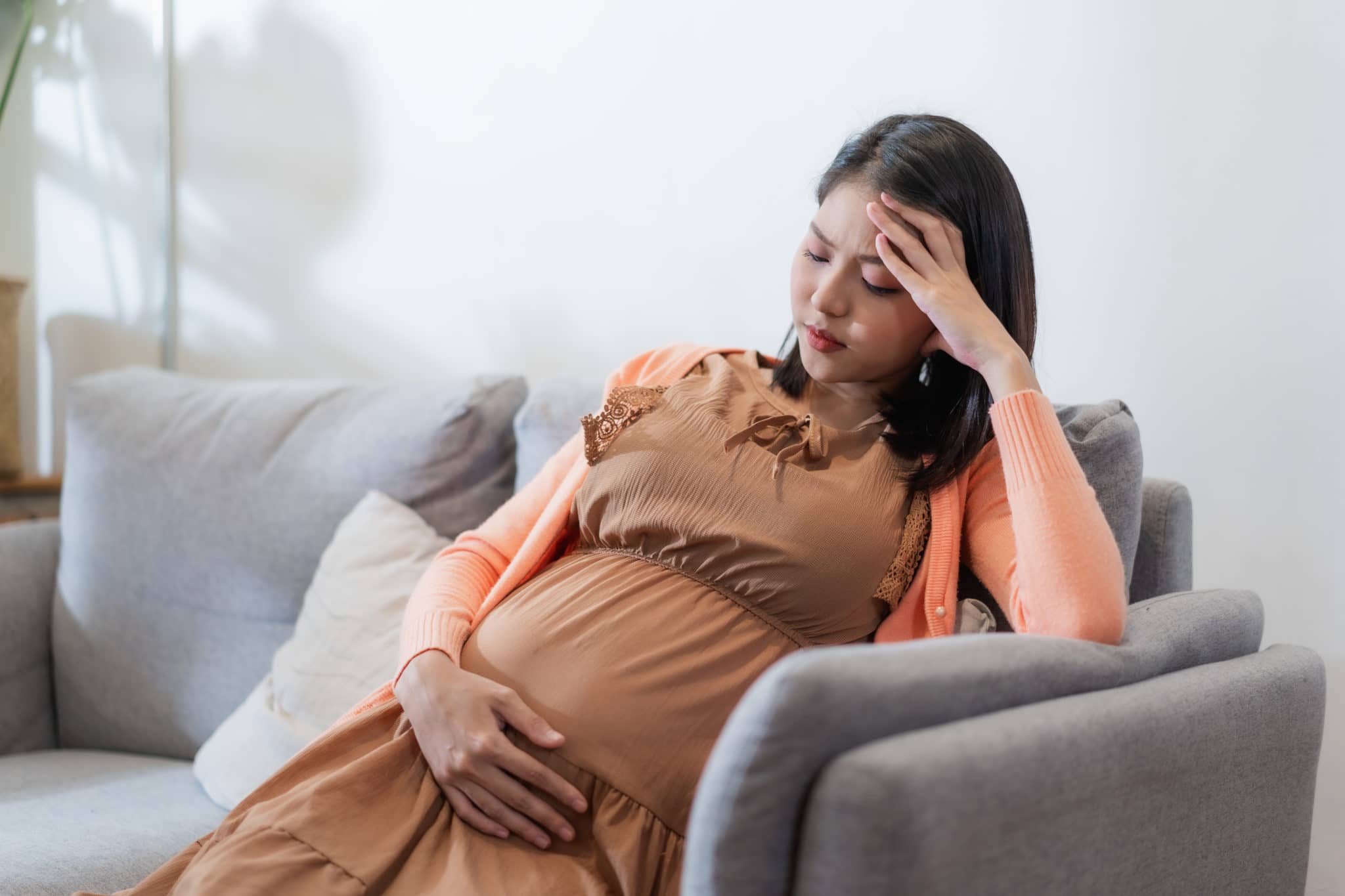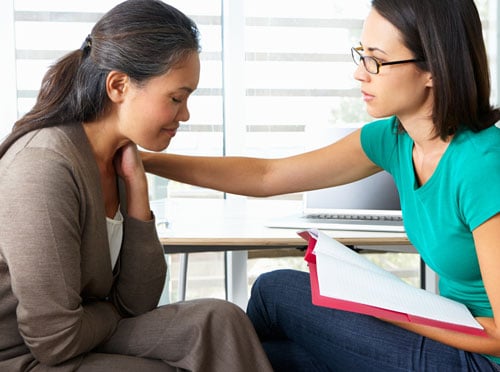At first, Vyvanse may seem like a harmless drug, especially if it’s first prescribed to you for Attention Deficit Hyperactivity Disorder (ADHD). However, Vyvanse can be especially concerning because of its side effects.
Both men and women can experience side effects from using Vyvanse, but some can be more pronounced in women. Also, women can face unique challenges when it comes to addiction and recovery, and it’s important to note the side effects that can come from Vyvanse use.
To break it down, we’ll explore Vyvanse side effects in women to help you identify if you or a loved one are suffering from a Vyvanse dependence.
What is Vyvanse?
Vyvanse is a stimulant medication that is used to treat ADHD in both children and adults. It is also prescribed to help treat binge eating disorders. Vyvanse can be an addictive substance because of how it affects the brain.

Taking Vyvanse increases the levels of two neurotransmitters in the brain, dopamine and norepinephrine, enhancing focus, attention, and impulse control. Taking Vyvanse can make you feel more in control and help you complete tasks easily. Though it can be an effective drug for managing ADHD, it can also be a highly addictive substance. Since addiction can seriously derail your life, it’s essential to be aware of possible side effects, especially for women.
Why Does Vyvanse Affect Women Differently?
If you are taking Vyvanse, it’s important to know that this drug can affect women differently due to our biology, hormones, and lifestyle factors. Women experience different hormone fluctuations, especially during their menstrual cycle, which can change how the medication is metabolized. Vyvanse can affect women in various ways and increase the risk of an addiction.
Vyvanse is used to treat binge eating disorders, and people can be prescribed to take Vyvanse to control their binges. Eating disorders are way more common than women, so women might be prescribed Vyvanse more than men.
Vyvanse can sometimes help improve your attention and focus, but this drug affects everyone differently and can sometimes cause women to have more anxiety or feel anxious. Since Vyvanse is a stimulant, it can easily become an addictive substance. Underlying mental health issues like anxiety and depression can also make women more vulnerable to developing a Vyvanse dependency.
Side Effects of Vyvanse in Women
Different side effects can be more prominent in women. This is because women process the substance differently. Women may experience side effects like:
- Insomnia or difficulty falling or staying asleep
- Anxiety, as well as other mental health symptoms.
- Weight loss.
- Dry mouth which can increase the risk of dental issues over time.
- Nausea
- Stomach Pain
- Constipation
It’s important to know that stimulant medications like Vyvanse can also cause more serious side effects in women, including:
- Cardiovascular problems.
- Chest pain
- Shortness of breath
- Fainting
- Circulation issues such as numbness, pain, or changes in skin color (turning blue)
- Paranoia
- Hallucinations
- Severe Anxiety
Effects of Vyvanse on Pregnancy
Pregnant women should stop taking Vyvanse when they become pregnant. This drug can be very unsafe for the mother and the developing fetus. Stimulant medications like Vyvanse can affect fetal development and can lead to complications like low birth weight and premature birth, as well as cause a newborn to experience withdrawal symptoms.
It’s also important to know that when women become pregnant, their metabolism changes, and the increased metabolic demand can change how the drug interacts with your body. This can intensify the drug’s side effects or even prevent the medication’s effectiveness.
It’s important for women who are pregnant or planning to become pregnant to speak with their doctor about other treatment options for ADHD while pregnant.

Vyvanse Side Effects: Weight Loss
Vyvanse can cause you to lose weight, so women who have a history of eating disorders may be tempted to use Vyvanse as a weight loss drug. This misuse of the drug can easily lead to a Vyvanse addiction. Quickly losing weight can be dangerous to your health and can increase your risk of cardiovascular side effects.
Vyvanse and Female Hormones
Vyvanse can interfere with female hormones in a variety of ways. Since women’s hormones fluctuate during their menstrual cycle, this could affect the efficacy of the drug, making women more sensitive to it at certain times. Women who are going through menopause should also be monitored when taking vyvanse and may need to alter their dosing of the drug. It’s also important to know that hormonal contraceptives can interact with Vyvanse and influence its effectiveness on your body. It can also enhance the side effects of the drug.
Serious Side Effects of Vyvanse
Since Vyvanse is a stimulant, it can affect your body in several different ways. Stimulants can increase your heart rate, blood pressure and can raise the risk of cardiovascular complications like a heart attack or stroke.
Can Vyvanse cause a heart attack?
Though it is rare, misusing Vyvanse can cause a heart attack or stroke. Anyone with a history of cardiac issues must consult a doctor before taking Vyvanse. Vyvanse can also be easily misused, and anyone with a Vyvanse dependence is at risk of suffering from a heart attack. Nonmedical use of Vyvanse can also hurt your health and increase your risk of having a heart attack.
Vyvanse side effects in women, in terms of nonmedical doses, can cause various side effects, including:
- Increased heart rate, elevated blood pressure, and palpitations.
- Mood swings, anxiety, and paranoia.
- Restlessness and insomnia
- Gastrointestinal problems such as nausea, vomiting and loss of appetite.
- Neurological issues like headaches, dizziness, and tremors.
Only take Vyvanse if you are being frequently monitored by a doctor, especially if you have had any cardiovascular issues in the past.

Can Vyvanse cause blood flow issues?
Vyvanse can easily cause issues of blood flow to the extremities, which can cause pain, numbness, and coolness in the fingers or toes. It’s important to speak to a doctor if you are experiencing any of these symptoms.
What Are The Signs of Vyvanse Abuse?
Addiction can look and feel different in everyone, and it can be difficult to tell if someone is abusing Vyvanse. Most people abuse the drug for its stimulant effect or to help them to lose weight.
Signs someone is abusing Vyvanse may include:
- Increased tolerance to the drug
- Obsessive Focus on obtaining the Medication
- Mood swings, agitation, or aggression.
- Isolation or social withdrawal
- Unexplained weight loss
- Insomnia
- Jitteriness
- Anxiety
- Using Vyvanse to get high
- Fatigue
- Depression
- Financial Issues
- Taking pills frequently
- Finishing pills early
- Visiting multiple doctors to obtain prescriptions.
- Inability to quit
Women’s Treatment for Vyvanse Abuse
At New Directions for Women, we offer a variety of rehabilitation options to help clients regain control over their lives and get on the road to sobriety. We offer various levels of care, from detox programs to detox and residential facilities to outpatient programs. Each program offers group therapy as well as individualized attention to help clients tackle their addiction.
Detox
Withdrawing from medications like Vyvanse can be scary and overwhelming. We offer a safe place where clients are monitored and given the help they need to detox from Vyvanse. We ensure that clients are monitored by trained medical professionals at all times.
Medical professionals can even prescribe medications that can help stop drug cravings and severe withdrawal symptoms. We want each client to feel safe and comfortable so they can focus on recovery.
Residential Treatments
A residential treatment or inpatient drug facility allows each client the chance to completely focus on tackling their addiction and getting on the road to recovery. At New Directions, we understand that each client is different and has different needs. We tailor every individual’s plan to meet her specific needs.
Our inpatient treatment offers a specific format. We start with detox, then offer inpatient services to help the client transition into their new sober life while offering different therapeutic practices. Finally, we offer extended care to reinforce the therapeutic practices and empower the client to feel confident in overcoming their addiction.

Intensive Outpatient Treatment
New Directions for Women’s Intensive Outpatient Program (IOP) gives women the skills they need to get on the road to sobriety. We meet clients where they are and our model accommodates people in various stages of their early recovery. Our goal is to get each client in complete abstinence from drugs and alcohol.
We also accommodate each client’s unique schedule and offer full or partial-day programs. Our programs are tailored to the needs of women who live in stable environments such as sober living homes or with supportive loved ones nearby. Our experienced staff can help women at all stages of recovery, and we work hard to tailor each program to the client’s needs.
New Directions for Women Can Help

Battling an addiction can be scary and incredibly difficult. At New Directions, we offer each woman a unique support system so she can get the help she needs to finally tackle her addiction. Our admissions team is ready to help you get the help you need. If you or a loved one are worried about a Vyvanse addiction, or if you have any questions, please contact us today. You don’t have to beat addiction alone.
Sources:
2024 (American Addiction Centers) Vyvanse Addiction: Signs, Symptoms and Treatment Options
2009 (National Library Of Medicine) Treatment Strategies for Co-Occurring ADHD and Substance Use Disorders
2024 (Mayo Clinic) Lisdexamfetamine Dimesylate (Oral Route)



